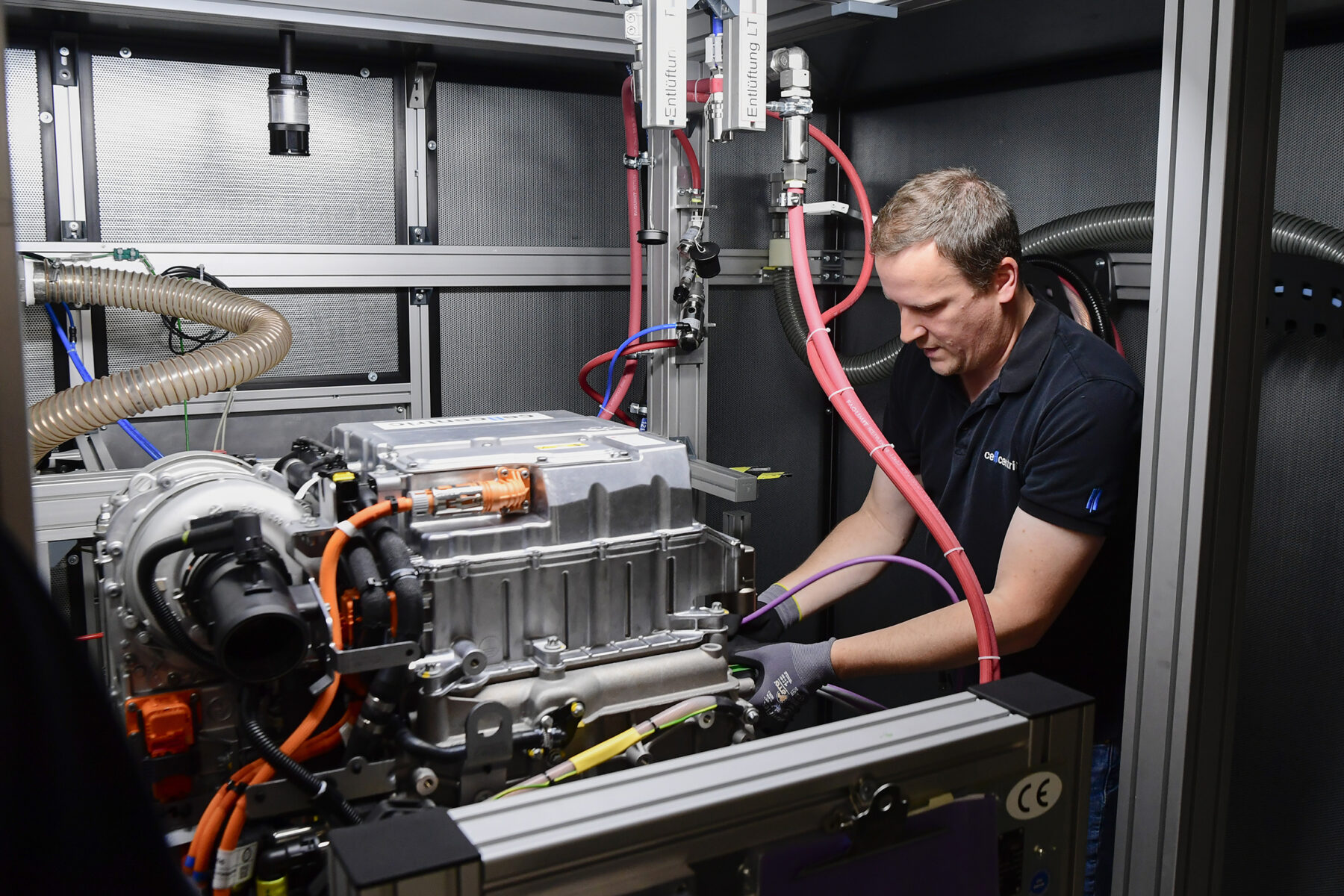Cellcentric Accelerates Fuel Cell Production in Germany
Key Ideas
- Cellcentric, a joint venture by Daimler Truck and Volvo Group, has initiated pilot production of fuel cells in Esslingen, Germany, with large-scale production set to begin by the end of the decade.
- The 'Next-gen' fuel cell system introduced by Cellcentric boasts a peak output of 375 kW and a lightweight design, now in production at the Esslingen site.
- Plans for establishing Europe's largest fuel cell production facility in Weilheim by the end of the decade have been delayed, with construction starting in autumn this year.
- The joint venture focuses on producing fuel cells for electric commercial vehicles, with Daimler Truck preferring liquid hydrogen technology while Volvo Group opts for conventional gaseous hydrogen storage.
Cellcentric, a joint venture formed by Daimler Truck and Volvo Group, has announced the commencement of pilot production for fuel cells at the Esslingen-Pliensauvorstadt site in Germany. The company plans to upscale production to a large scale by the end of the decade. This initiative aligns with their introduction of the 'Next-gen' fuel cell system, featuring a high peak output of 375 kW and a lightweight configuration achieved through an integrated single-system package solution. Although the mass production facility is not in Esslingen, Cellcentric intends to establish 'Europe's largest fuel cell production' in a new factory located in Weilheim towards the end of the decade, with construction activities commencing later this year. The joint venture, established in 2021, is dedicated to manufacturing fuel cells for electric commercial vehicles. Notably, the venture acquired the Esslingen building and a significant number of employees from Daimler AG, transitioning the fuel cell expertise from various divisions of Daimler AG to the Cellcentric joint venture. Daimler Truck and Volvo Group, the venture partners, have differing hydrogen storage preferences, with Volvo Group favoring conventional gaseous hydrogen while Daimler Truck opts for liquid hydrogen cooled to -253 degrees Celsius, offering higher energy density and extended ranges. However, liquid hydrogen technology faces infrastructure challenges. The article reflects a positive sentiment towards the advancements in fuel cell production by Cellcentric and underlines the strategic plans and technological preferences of the joint venture partners.
Topics
Public Transit
Infrastructure
Technology
Automotive
Manufacturing
Commercial Vehicles
Future Plans
Joint Venture
Production Site
Latest News
